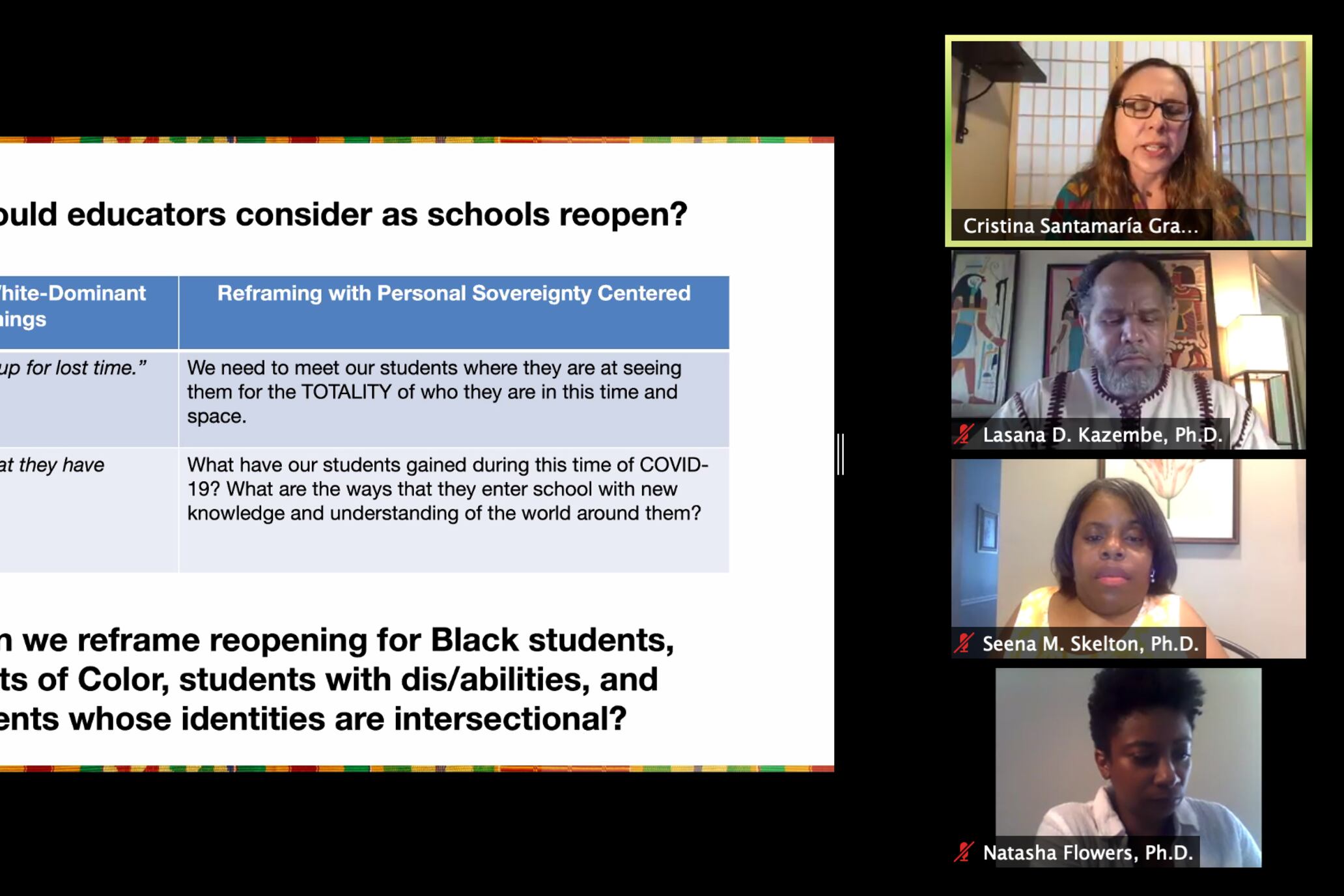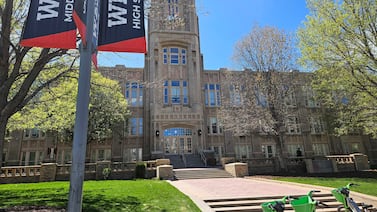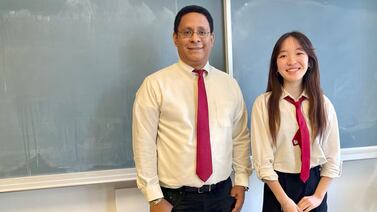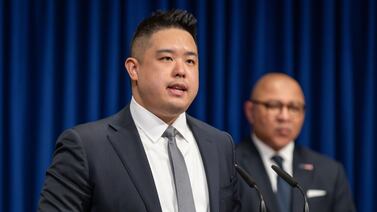When Indiana schools reopen, teachers need to address the overlapping crises of the coronavirus pandemic and police brutality, which exacerbate inequities Black students face, said Lasana Kazembe, an assistant professor at IUPUI.
“White supremacy is the No. 1 organizing principle in this country...Our experience with education is no different,” Kazembe said.
As educators plan to resume instruction, Kazembe and other education experts offered advice on how to confront racism in the classroom and make teaching more inclusive of students of color. They spoke Wednesday morning during an annual education conference organized by the nonprofit Indiana Black Expo. Nearly 5,000 people registered for the virtual conference.
Here are five takeaways from the session:
1. Recognize emotional effects of pandemic
School leaders should position conversations about reopening schools in the context of overt and structural racism, IUPUI associate faculty member Seena Skelton said. Black and Latino Americans contract COVID-19 at three times the rate of white people. So teachers need to recognize that Black children are grieving at disproportionate rates.
Black children could manifest anger in response to the coronavirus and police killings of Black people. That anger could take the shape of difficulty sleeping that makes it harder to focus in class, deviant behavior, avoidance of work that could add extra stress, and a tendency to overplan and overcontrol. These behaviors are typically characterized as “problematic” in schools.
“We want to think about how we are training these behaviors, and what these behaviors are actually masking — what these behaviors are actually messaging,” Skelton said.
2. Focus on what students gained during the pandemic, instead of focusing on learning loss
In addition to planning what school will look like logistically, educators are planning to make up for learning gaps due to school closures in the spring. Cristina Santamaría Graff, an assistant professor of special education at IUPUI, said that view stems from a Eurocentric, white perspective.
“You’re quantifying it through a very narrow scope,” she said.
Educators should instead look at how students are reentering schools with a new understanding of the world around them.
3. Seek parent feedback beyond surveys
Santamaría Graff encouraged school leaders to take a step further than surveys and questionnaires when gathering feedback on reopening plans.
“A survey doesn’t always reach Black and brown families of color,” she said.
Schools could find cultural liaisons within the community that can represent families’ voices and encourage them to share their honest critiques. Then, school officials need to actively listen to their feedback.
Santamaría Graff also suggested virtual town halls to facilitate deeper conversations than are possible through a survey.
4. Pair student support with high expectations
Educators often view supportive communities and high expectations as mutually exclusive goals, Skelton said.
But that’s not true, she said, and educators should aim to be a “warm demander” in both in-person and virtual environments in the fall. Educators can do this by checking in with students and respecting each student’s strengths.
“Every child’s emotions are valid emotions,” Skelton said.
5. Promote racial literacy
When teachers spot stereotypes in material or classroom interactions, Skelton said they should confront the stereotype and create a counter-narrative. Teachers should take special care to help Black children understand their own history.
“So much of our history has been erased and marginalized through instruction in our schools,” she said.







